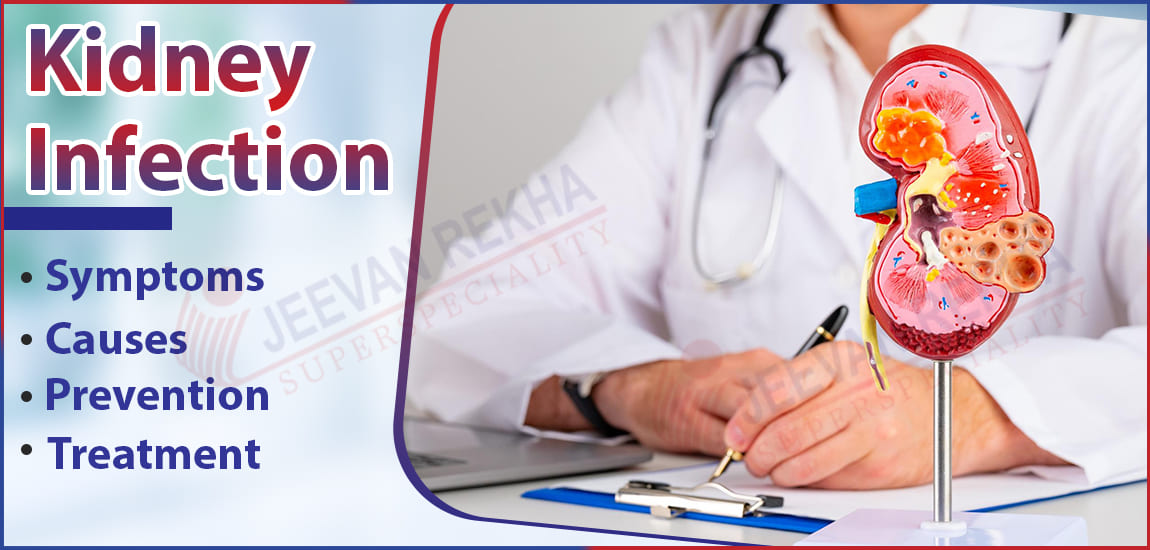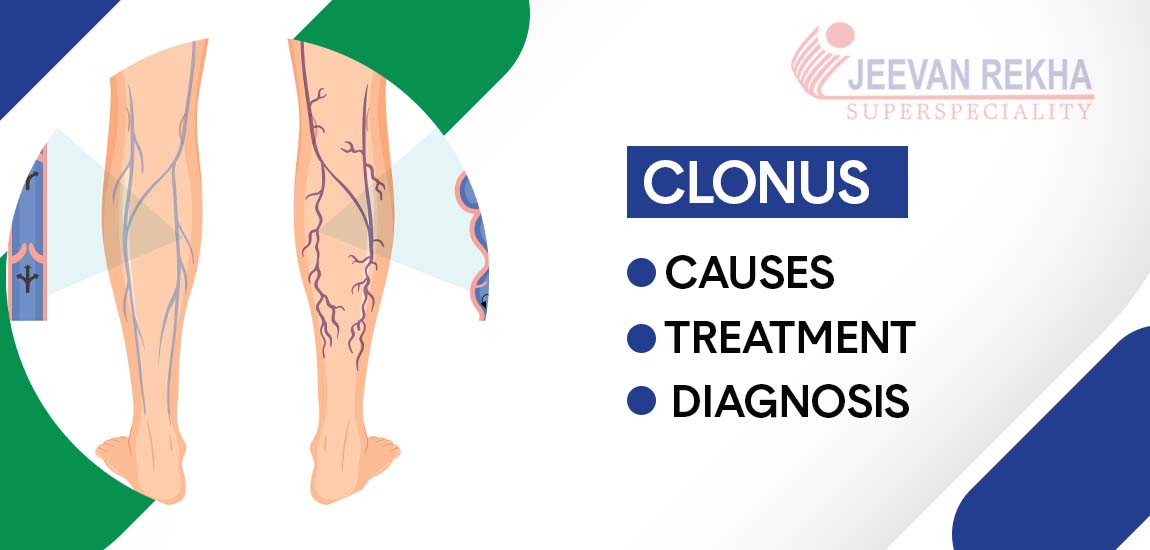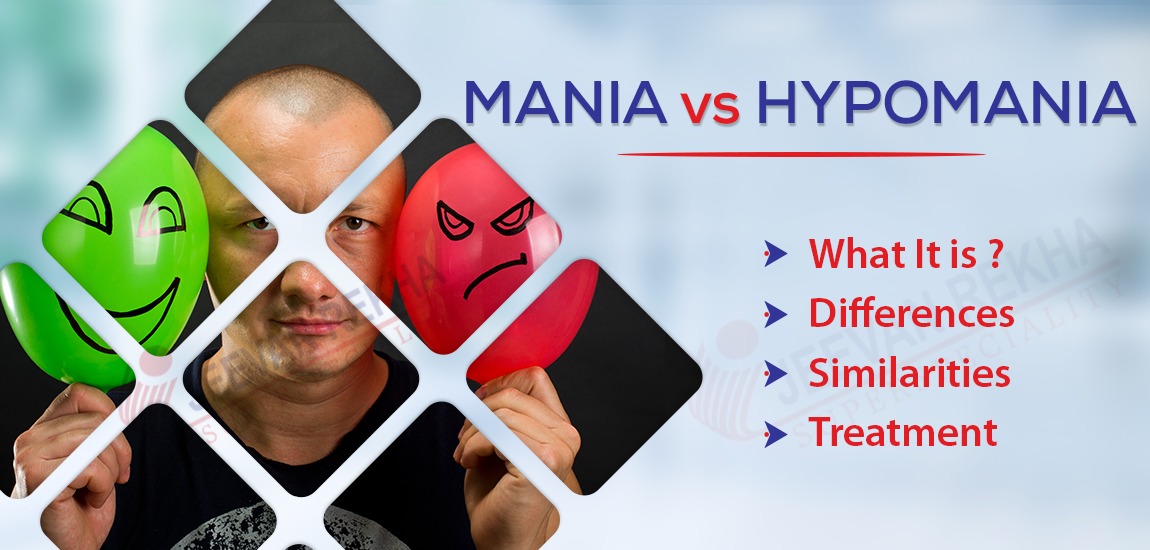
- By Jrsh Admin
- In Health and Tips,
- Posted August 20, 2025
Kidney Infection: Symptoms, Causes, Prevention, and Treatment
A kidney infection, which in medical terms is pyelonephritis, is a dangerous set of infections of the lower urinary tract occurring when bacteria travel up from the bladder to one or both kidneys.
The infections can lead to serious complications if not treated promptly, such as permanent kidney damage or bacteria entering the bloodstream. Being aware of kidney infection symptoms, causes, prevention, and treatment options can help lessen the risk and aid in recovery.
What Is a Kidney Infection?
A kidney infection occurs when harmful bacteria, commonly E. coli, enter the urinary tract and ascend toward the region of the affected kidney. Any person can develop this infection, but women are much more prone because the urethra is shorter for them. The kidneys perform the vital function of eliminating waste and excess fluid from the blood, so any infection in the kidneys could weigh heavily against their function.
Kidney infection is usually acute but can become chronic if not dealt with in time. An early diagnosis, coupled with appropriate treatment, would be the best chance for a complete recovery.
Common Symptoms of Kidney Infection
The symptoms of kidney infection come on quickly and maybe one of the mostly uncomfortable to painful experiences. Identifying early signs is very much crucial for rapid medical intervention.
Some of the most common kidney infection symptoms are:
- High fever (usually higher than 101°F or 38.5°C)
- The lower back, side, or groin feels pain
- Frequent urination with pain
- Pain or burning sensations during urination
- Cloudy, dark, or blood-tinged urine
- Strong or foul smell from urine
- Nausea and vomiting
- Chill and weakness
In children or the elderly, however, symptoms may be more nonspecific. Elderly people could be showing confusion, poor appetite, and general weakness as the only apparent signs.
What Are the Causes of Kidney Infection?
Kidney infection causes are highly common due to bacteria entering into the urinary tract via the urethra. From there, the germs can travel to the bladder and then ascend to the kidneys if ignored. But there are other risk factors and causes to consider:
- Urinary retention: Failure to empty the bladder completely allows bacteria to multiply.
- Urinary tract abnormalities: Anomaly or other defects may be obstructing the flow of urine.
- Kidney stones: They block urine flow and trap bacteria.
- Immunocompromised state: Diabetes, HIV, or drugs suppressing immunity such as corticosteroids or cytotoxic drugs.
- Catheter usage: Long-term catheterization carries a considerable risk of bacterial growth.
- Vesicoureteral reflux (VUR): Urine in this disease flows backward from the bladder to the kidneys.
Awareness of these causal factors aids in the prevention and choice of best treatment of kidney infections.
You Can Read Also: Alcoholic vs. Non-Alcoholic Fatty Liver: Understanding the Key Differences
How Do Kidney Infections Get Prevented?
Avoiding kidney infections is generally a matter of urinary hygiene and lifestyle habits. Here are some science-based ways you can reduce your risk:
- Hydrate: The more water you drink, the more urine you produce. This increase in urine production helps flush bacteria away from the urinary tract.
- Urinate frequently: Never hold urine for long-having the need to pass urine inthe bladder is a warning that bacteria may be multiplying.
- Proper wiping: Women are advised to wipe from front to back to prevent bacteria in the anal region from reaching the urethra.
- Urinate after sexual intercourse. This will flush out bacteria that could have been introduced into your urethra with your partner during sex.
- Prevent irritation from feminine products. Douches, powders and soaps can irritate the urethra.
- Control chronic conditions. Conditions like diabetes increase the chances of infection and need to be monitored.
If you follow all of these habits, you should be less likely to develop a kidney infection.
Effective Treatment Options for Kidney Infection
Having early intervention can prevent adverse outcomes such as kidney scarring and sepsis. Usually, kidney infection treatment includes a combination of antibiotics, rest, and fluids.
- Antibiotics
The doctor will typically provide an antibiotic regimen for a one or two-week duration depending on the severity of the infection. A few common examples of antibiotics include:- Avelox (ciprofloxacin)
- Bactrim (trimethoprim-sulfamethoxazole)
- Augmentin (amoxicillin-clavulanate)
- In severe cases the patient may need to be hospitalized in order to receive IV antibiotics.
- Pain Management
Over-the-counter pain relievers like ibuprofen or acetaminophen can help relieve discomfort and lower fever. - Stay Hydrated
It helps to drink plenty of water to aid the kidneys and flush out the bacteria speedily. - Rest
Get plenty of rest, sunning good vibes to your immune system, so it can fight off that infection. - Follow-up care
- Your doctor may want to do a follow-up urine test to ensure the infection has been cleared.
- Surgery is sometimes warranted in more complicated cases, where kidney stones along with urinary tract obstruction are involved.
Kidney Infection Recovery Time
The recovery time of a kidney infection will depend on the seriousness of infection and the time of treatment initiation. The affected individuals usually begin to feel well within a matter of days after commencing antibiotic treatment. Sometimes, however, the very serious cases may take a fortnight or even longer to heal.
There may be an extension of the recovery phase from the original infection when hospitalization becomes necessary, such as because of other complications or other systems of the body being weakened. It is important that you never stop your antibiotic treatment in the middle just because you feel better; if you do, the infection is likely to come back.
You Can Read Also: Thyroid Disease: What It Is, Causes, Symptoms & Treatment
When To See A Doctor
You should seek medical attention immediately if you encounter:
- Continued fever;
- Severe pain of the side or back;
- Blood in urine;
- Vomiting, unable to keep fluids down;
- Not getting better within 24 or 48 hours of antibiotic use;
- Recurrent urinary tract infections.
- Pregnant women, those with diabetes, or immunocompromised individuals must seek medical advice at the earliest signs of a urinary tract infection to avoid complications.
Conclusion
A kidney infection is not just irritating; if left untreated, serious consequences could arise. If we can recognize early symptoms of kidney infection, know the causes of a kidney infection, and take measures to avoid it, we not only can maintain kidney function, but our health. Fortunately, with early intervention and treatment for a kidney infection, the majority of patients develop a positive outcome shortly after an initial kidney infection recovery time.
At Jeevan Rekha Hospital in a Jaipur, our immunologist and kidney specialists have a wealth of experience treating kidney issues. From diagnosis, treatment and post-treatment, we are focused on maximizing the results for each patient. If you feel any signs of a kidney infection, or if you have ongoing urinary issues, please see us. We care about you and your kidneys.
Tags
Blog Search
Latest Posts
-
Skin Ulcers Uncovered: Causes, Types, Symptoms, and Healing Options
January 13, 2026 -
Is Coconut Water Safe During Pregnancy? Benefits, Risks & Myths
January 08, 2026 -
Dark Circles Under The Eyes: Causes, Home Remedies and Treatments
December 21, 2025 -
बर्ड फ्लू के लक्षण, कारण, उपचार और बचाव के उपाय जानें
December 04, 2025 -
Best Diet Plan for Menopause Weight Management
November 25, 2025




